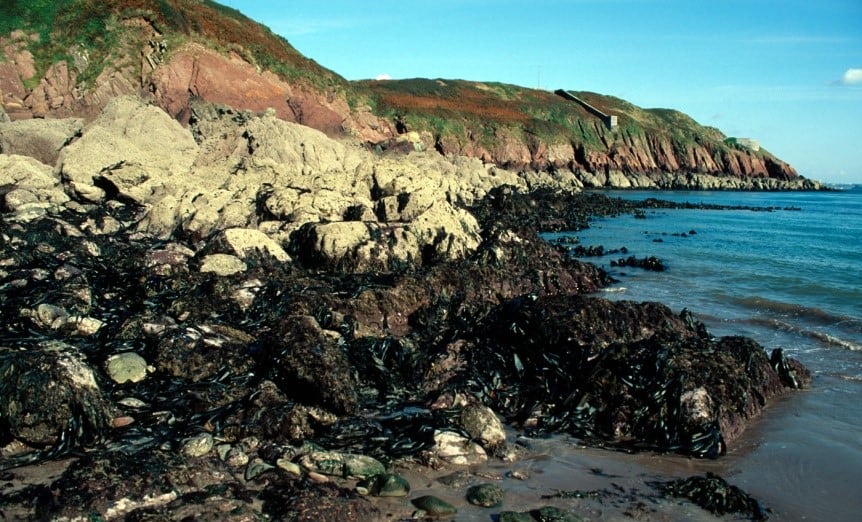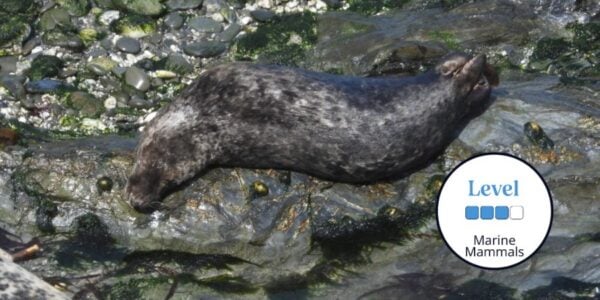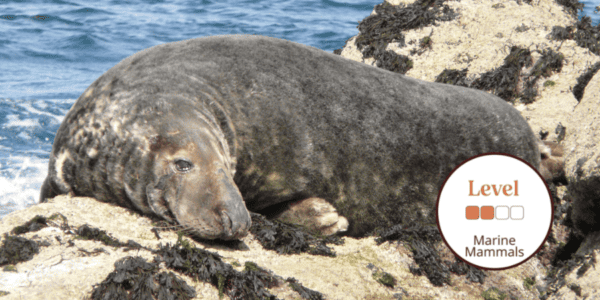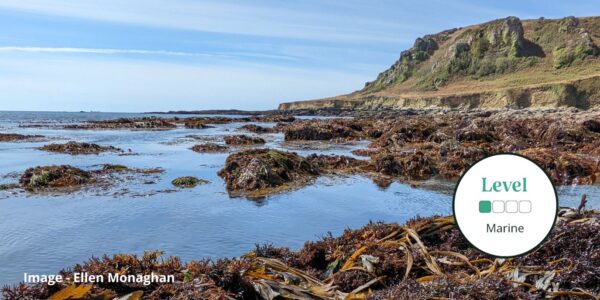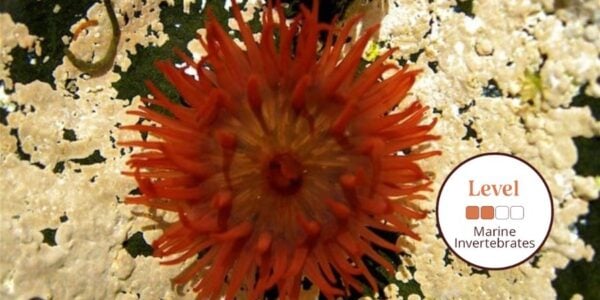This one day beginner-intermediate course will introduce you to the rocky shore habitat of the beautiful Scottish island of Great Cumbrae and cover important aspects of intertidal ecology, through classroom-based theory and practicals out in the field.
This course will cover:
- An overview of the intertidal environment, along with the biotic and abiotic factors that influences the creatures that live there.
- Identification tips for common species of UK marine organisms, including invertebrates, fish and seaweed.
- In depth explanation of the fascinating adaptations that allow plants and animals to survive in this dynamic environment.
- An guided exploration of the rocky shore habitat at low tide.
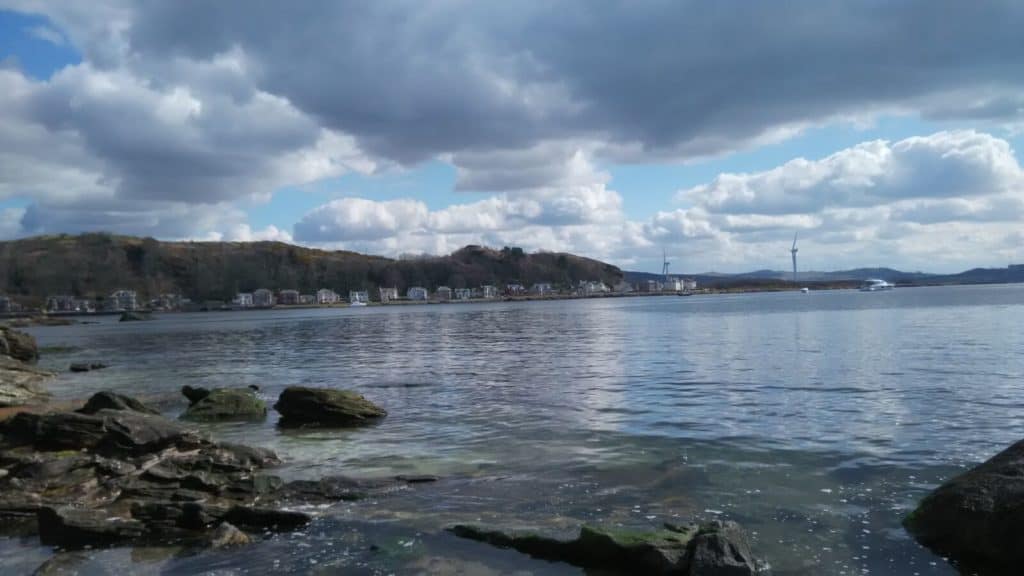
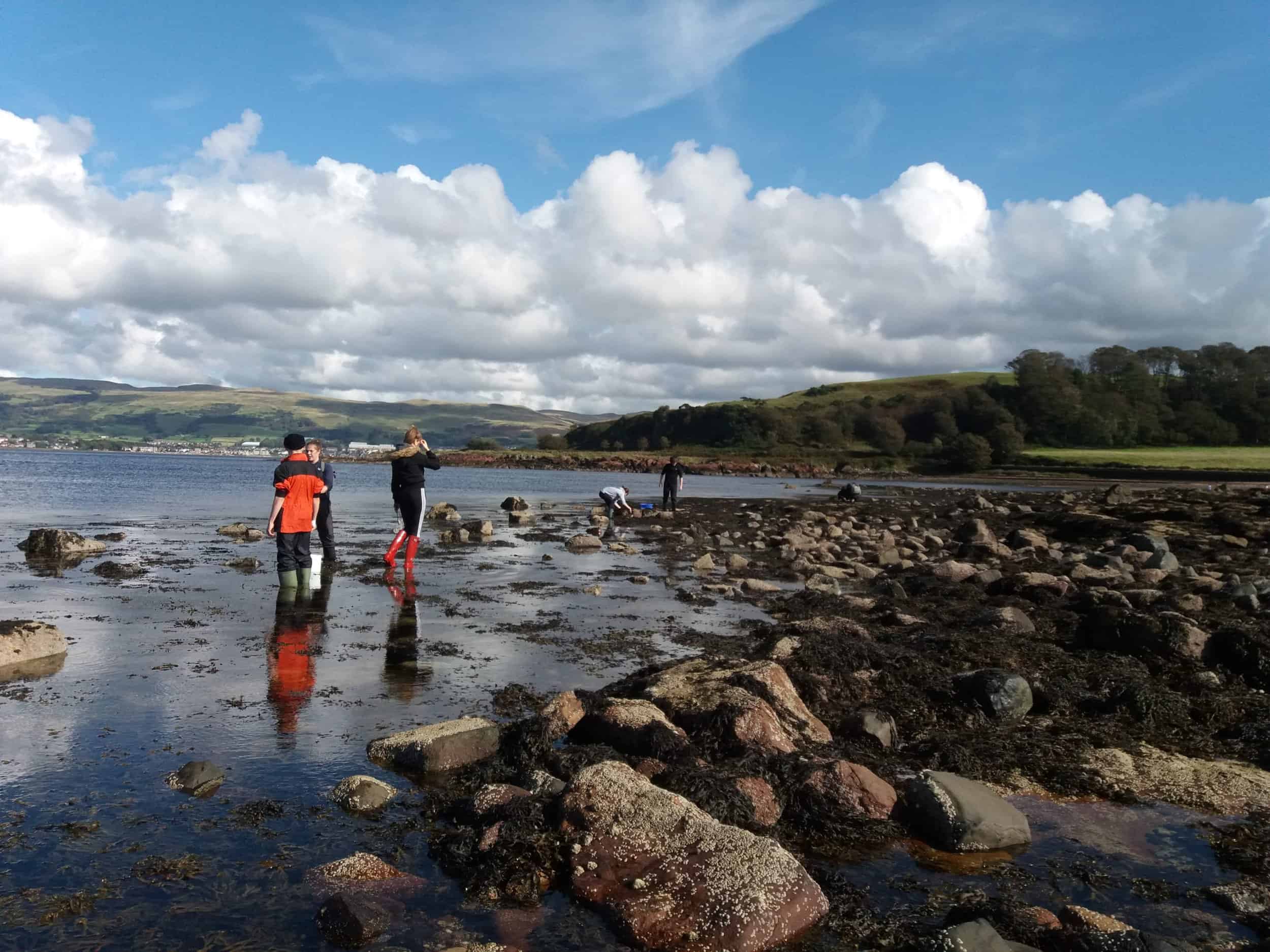
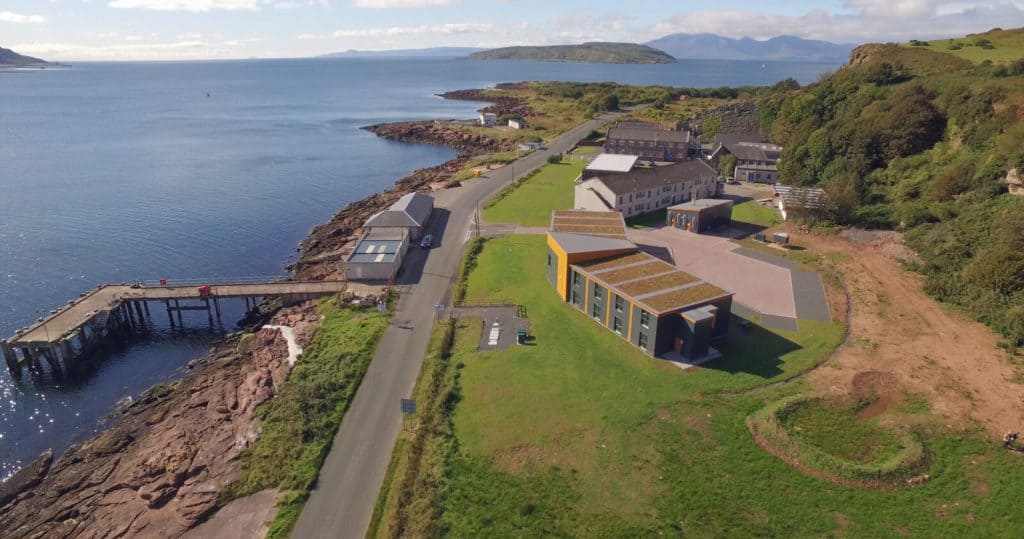
Read More
The coastlines of Britain are one of the richest habitats on the planet, with an incredibly diverse community of marine organisms thriving at the interface between land and sea. For a few short hours a day, the ocean retreats and allows those who are patient and determined an opportunity to explore the marine realm (without getting wet!).
As an island nation with large tides, our intertidal habitat is extensive and plays an important role in ecosystem function. The rocky shore is among the most common of these intertidal habitats, yet one of the most exciting and diverse places to study. A fantastic array of fauna and flora can be found in these places, with representatives from a huge list of animal and plant groupings.
The course will cover both theory and practical elements, including:
- Excursion to the rocky shore – during one of the lowest spring tides of the year, you will venture down the rocky shore to identify and collect a range of specimens, including seaweed, invertebrates and fish. The expert tutor will be on hand to assist with identification, and to describe some of the fascinating life history strategies and ecologies of the organisms you find.
- Identification and examination back at the lab – with your bucket full of amazing creatures, we will head back to the marine laboratory at FSC Millport. Here, using specialist aquarium equipment and identification guides from the library, you will identify the specimens down to species level and compile a species list for the day. Time will be allocated to discuss interesting adaptations of the different types of flora and fauna found.
- A lecture on the physical environment of the rocky shore, and how marine organisms have adapted to thrive in this harsh environment. Information on marine foodwebs, how tides work, and the threats to our coastal habitats will be discussed.
The course will also include:
- Free entry and guided tour of the Robertson Museum and Aquarium.
- Any waterproofs, wellies and other field equipment required for the duration of the course.
By the end of this course, you will be able to:
- Identify a range of common intertidal organisms.
- Describe how organisms are adapted to live on the rocky shore, with specific examples of key species.
- Explain what life is like in the intertidal zone, including how our tides work.
Read more about the history of Millport Marine Station here:
FSC Millport – Wikipedia
Who should attend? – This course is suited to anyone with an interest marine biology or UK wildlife.
Knowledge level – Beginner-Intermediate. Level descriptors can be found on the following web-page: Framework and Course Level Descriptors
Prior knowledge – No prior knowledge is required for participants to enjoy this course.
PLEASE NOTE: There is no accommodation, refreshments, or meal facilities included in this course price. If you wish to stay at FSC Millport, you will need to contact the centre directly at [email protected] or on 01475 531420.
Any guests arriving the morning that the course starts may not have immediate access to their rooms – it could be as late as 16:00 on the Saturday. Any guests staying at the centre the evening before would need to expect continental breakfast only on the Saturday morning to make the early start time.
If we are unable to reach viable numbers for this course, we will inform you of the course cancellation 4-5 weeks prior to the course run. We would recommend when purchasing accommodation and/or travel you should take out your own insurance.
Bookings will close if course capacity is reached.
Please email [email protected] if you have any questions.
About the Tutor
Jack Lucas
Jack is an experienced marine ecologist with broad range of field skills and scientific knowledge. With a focus on marine mammals and seabirds, Jack has worked all over the world on research projects studying these animals in their natural habitats. Jack was formerly the Senior Tutor at FSC Millport, where he led the provision of science, wildlife and outdoor activity courses to learners of all ages. He has taught seabird, marine mammal and other wildlife courses at Field Studies Council centres for the last 6 years and has an in-depth knowledge of the sites and species that feature in his courses. His love of marine megafauna is channeled through his teaching, where learners will discover how they too can get involved with these amazing creatures! An extensive background as a marine biologist working on research vessels and marine laboratories around the world has allowed Jack to deploy of different marine surveying techniques and develop a broad understanding of the different groups of marine species commonly encountered.
Jack currently lives on the west coast of Scotland, and when back on land he can usually be found in the highlands or the islands, photographing wildlife or engaging in a variety of outdoor activities!
Example Timetable
Example Timetable
This timetable is subject to change but should give a clear outline of what to expect.
- Please arrive in time for the course to start promptly at 07:30am
- The course will end at 4:00pm
Low tide: 0757 (0.01m)
07:30 – Welcome and course introduction
08:00 – Rocky shore field excursion
11:00 – Return to classroom with specimens
11:15 – Tour of Robertson Aquarium & Museum
12:00 – Lunch (not provided)
13:00 – Lecture on rocky shore ecology
14:00 – Identification of remaining specimens using advanced ID keys & microscopes
15:30 – Summary and Q&A
16:00 – Course finish
Note: itinerary may vary depending on weather.
Please note accommodation, refreshments and an evening meal are not included in the course price. If you wish to stay at FSC Millport, you will need to contact the centre directly at [email protected] or on 01475 531420.
What's Included
The course has been carefully created by expert tutors and educators to help you build your knowledge and apply it within the field surrounded by like-minded individuals.
The course includes:
- Classroom learning covering the theory of the species
- Field excursions to apply new knowledge
- Expert tuition for which the Field Studies Council is renowned
- Clear objectives and progression
You can rest assured that the absolute best content from an expert in environmental education will be provided. In choosing a Field Studies Council course, you will be joining thousands of people who learn with us each year.
Bursaries and Subsidies
Student Discount
This course is eligible for a student discount. If you are a current student, please use discount code BioStudent20 at checkout for 20% off all Biodiversity courses.
Natural History Bursaries
There are a number of natural history bursaries available to help with the cost of your course. To find out if you and your chosen course are eligible, read more here.
Before You Attend
What to Bring
- Notebook and pencil/pen
- Lunch and refreshments
- Sensible footwear and clothing for being outdoors
- Small bag to carry personal items
Recommended Literature
- Field Studies Council Rocky Shore Name Trail (£6.00)
- Click here to browse all Field Studies Council publications related to 'Rocky Shores'
There will be a member of staff with first aid training and access to a first aid kit on site. If you have special medical or access requirements, please let us know as soon as possible so we can plan the course.
Opportunities to attend this course
This course is not currently available to book. Dates will follow soon.
Sign up to our Email Newsletter
Progress Your Learning
This is a training course from the Field Studies Council, delivered by expert tutors with an approachable learning style. After attending this course, you may like to progress your learning with further relevant courses or branch out into other areas of natural history. The Field Studies Council offers both online and in person courses, so you can choose the learning style that suits you best.
The course gives you the opportunity to immerse yourself in a new subject and acquire novel skills. Our online portal gives you time to study at your own pace and fit the lessons around your own schedule.
If you have any questions about our courses please check our Frequently Asked Questions or email [email protected].
Group Bookings Made Easy
If you have a group of 10 or more individuals wanting to complete one of our courses, our team are available to discuss your options – from discounts to private team courses. Find out more!
You can rest assured that the absolute best content from an expert in environmental education will be at your fingertips. In choosing a Field Studies Council course, you will be joining thousands of people who learn with us each year.

